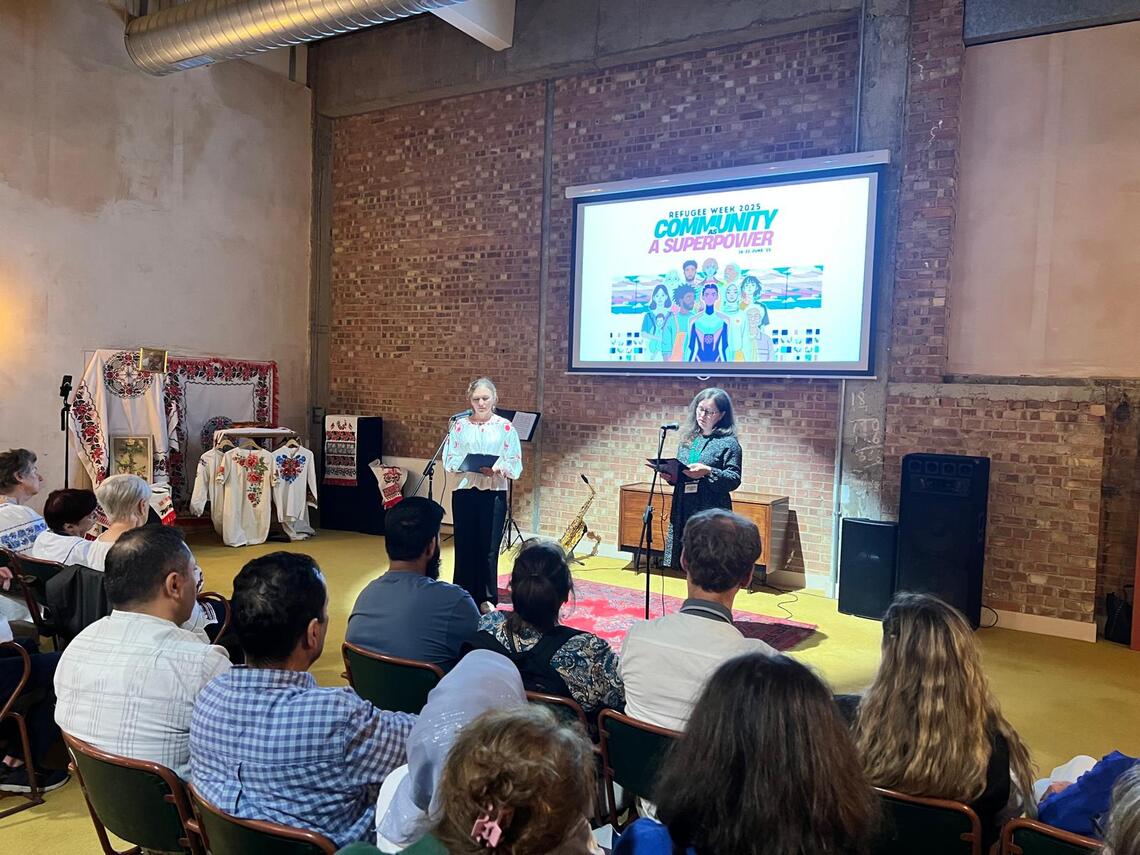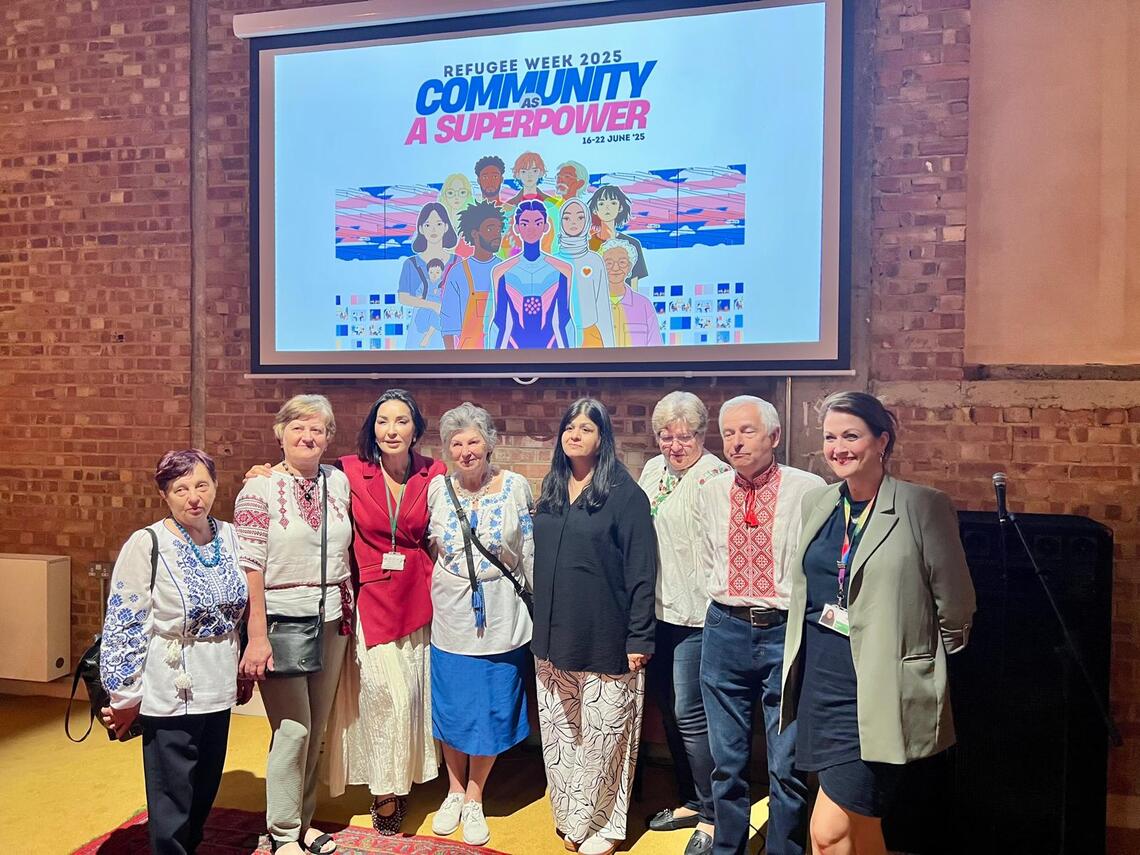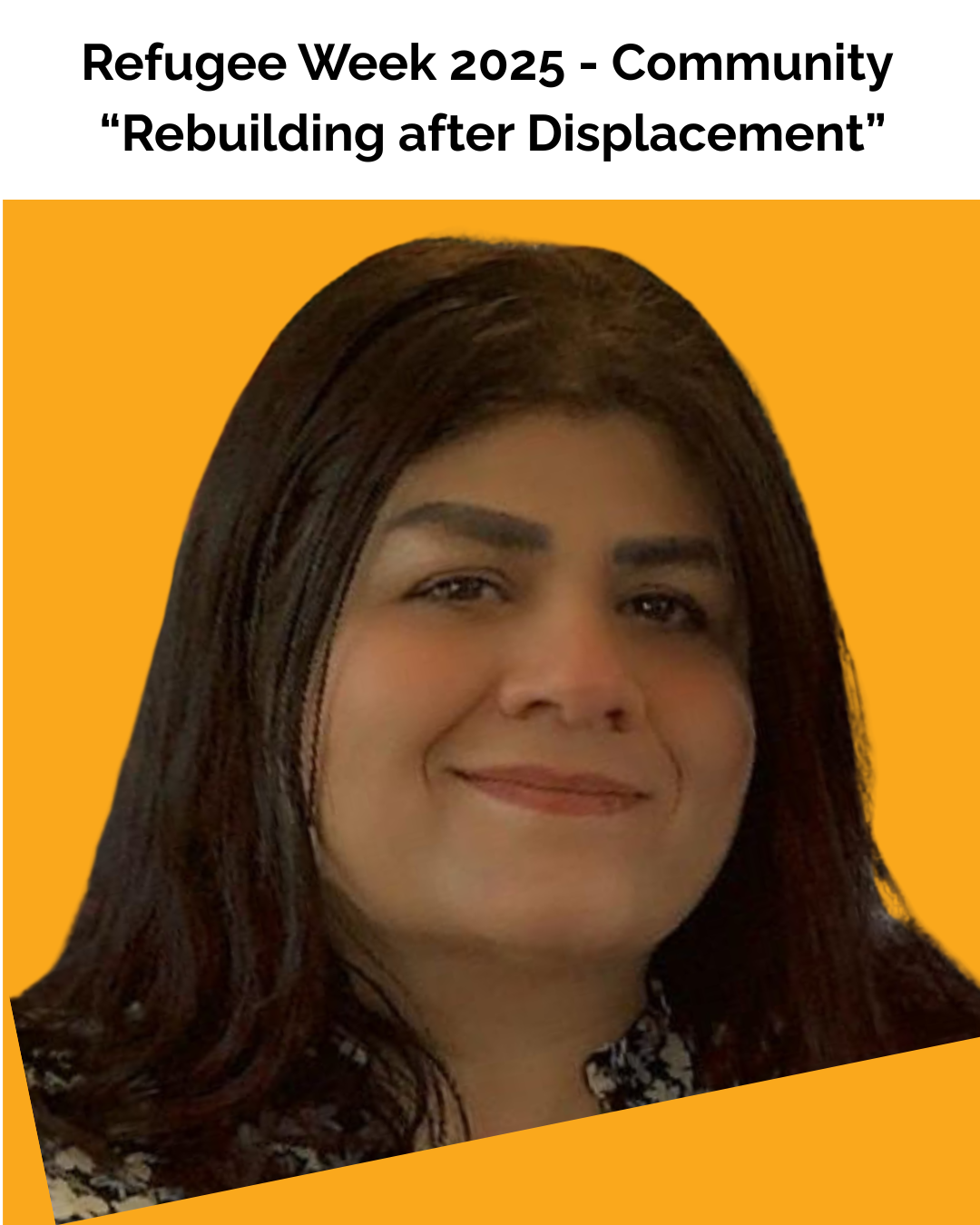As we draw to a close Refugee Week 2025 (June 16th - June 22nd), the theme of Refugee Week 2025 has been "Community as a Superpower" and this continues to resonate strongly in Sutton. The community support to the Afghan, Ukrainian and Hong Kong BN(O) communities has been a vital lifeline to many from those communities.
We hear from Nadia who is from the Aghan Community and reflects on "Rebuildling after Displacement" - a topic that not many of us have experienced or lived through and yet is happening across the world everyday. At Volunteer Centre Sutton - we thank Nadia for bravely sharing her thoughts and we hope we continue to foster community and support all those around us.
Rebuilding after Displacement - Nadia Behboodi
As we gather here today, the world feels heavy with suffering. From devastation in Ukraine to the heartbreak in Gaza…
From the long shadows of war in Afghanistan to the silent tragedy unfolding in Sudan - these are not just crises on our screens.
They are real, they are human stories. Stories of families uprooted, children robbed of safety, and communities trapped between survival and despair.
Today, over 120 million people worldwide are forcibly displaced - the highest number in recorded history. From Afghanistan to Gaza, Sudan to Syria, Ukraine to Myanmar, millions have been pushed from their homes-not by choice, but by war, persecution, and instability.
I come to this conversation not just as a professional in international development, but as someone who has lived through the complexity of war and resettlement. Four years ago, I resettled in the UK after spending years working on development and reform in Afghanistan. I’ve seen how institutions can be rebuilt - and how quickly they can collapse when conflict overtakes trust.
When we speak of displacement, the focus often falls on what is lost:
homes, loved ones, careers, safety. But what’s too often overlooked is what is built after the loss.
What endures when systems fail?
What gives people the will to wake up again in unfamiliar places, navigate policies, face language barriers, or begin life all over again?
The answer is simple - and powerful: the answer is community.
Community is not defined by passports, paperwork, or property.
It is defined by connection - the quiet strength found in collective identity, cultural continuity, mutual care, and shared survival.
In refugee camps, shelters, or new cities, community emerges as a survival strategy - often more immediate and effective than institutional aid.
In times of abandonment, communities become the providers of safety, food, hope, education, and dignity.
We’ve seen this across the world:
- Afghan women forming underground support groups when education is banned.
- Ukrainian families organising food, transport, and shelter for one another across borders.
- Sudanese youth running pop-up health clinics in camps.
- Gaza’s local networks caring for children amid bombardment.
These are not headlines — they are lifelines.
Community doesn’t only refer to those displaced -it also includes those who receive them.
When host communities open their doors, hearts, and systems - even imperfectly - they become a bridge from loss to belonging.
Schools that create trauma-informed classrooms, neighbours who offer welcome, and councils that support refugee-led initiatives -
these are forms of community that heal.
Yet, we must also name the reality:
Refugees often face isolation, racism, xenophobia, or administrative limbo.
Belonging must be built, not assumed.
For those of us in the diaspora, like myself, community becomes both a memory we protect and a mission we carry.
We build bridges between past and future.
We hold on to language, recipes, lullabies, and values-
while learning new systems, contributing to new societies, and raising the next generation with dual identities.
But community is a two-way street.
For refugees and displaced people, the journey toward rebuilding includes more than survival.
It calls for courage - the courage to open up to new communities, to embrace change, and to build trust in unfamiliar places.
Integration is not about losing identity, it is about expanding it.
It is about finding common ground while sharing your culture’s richness.
It means stepping forward to participate in local life, to learn new languages, customs, and ways of being, while inviting others to understand your story and values.
This openness enriches both newcomers and host communities.
It builds resilience, breaks down fear, and creates connections that transform neighbourhoods, cities, and nations.
So, what makes community a superpower?
- It is immediate: it responds faster than institutions.
- It is inclusive: it adapts and embraces difference.
- It is resilient: it grows from pain but never forgets hope.
- And it is transformational: it does not just help people survive, it helps them thrive.
Four years ago, I resettled in the UK.
I came with lived memories of war, with a professional past in humanitarian development, and with hope that my children would grow up in peace.
What I found -beyond any institution - was the quiet kindness of a neighbour.
The trust of a colleague.
The embrace of a shared prayer.
That is community.
That is power.
As we mark Refugee Week, let’s remember:
Displacement does not define people. Community does.
Let’s nurture, uplift, and invest in communities -
because they are not a side story in humanitarian work.
They are the starting point of all healing, and all change.
Thank you.
 |
 |







